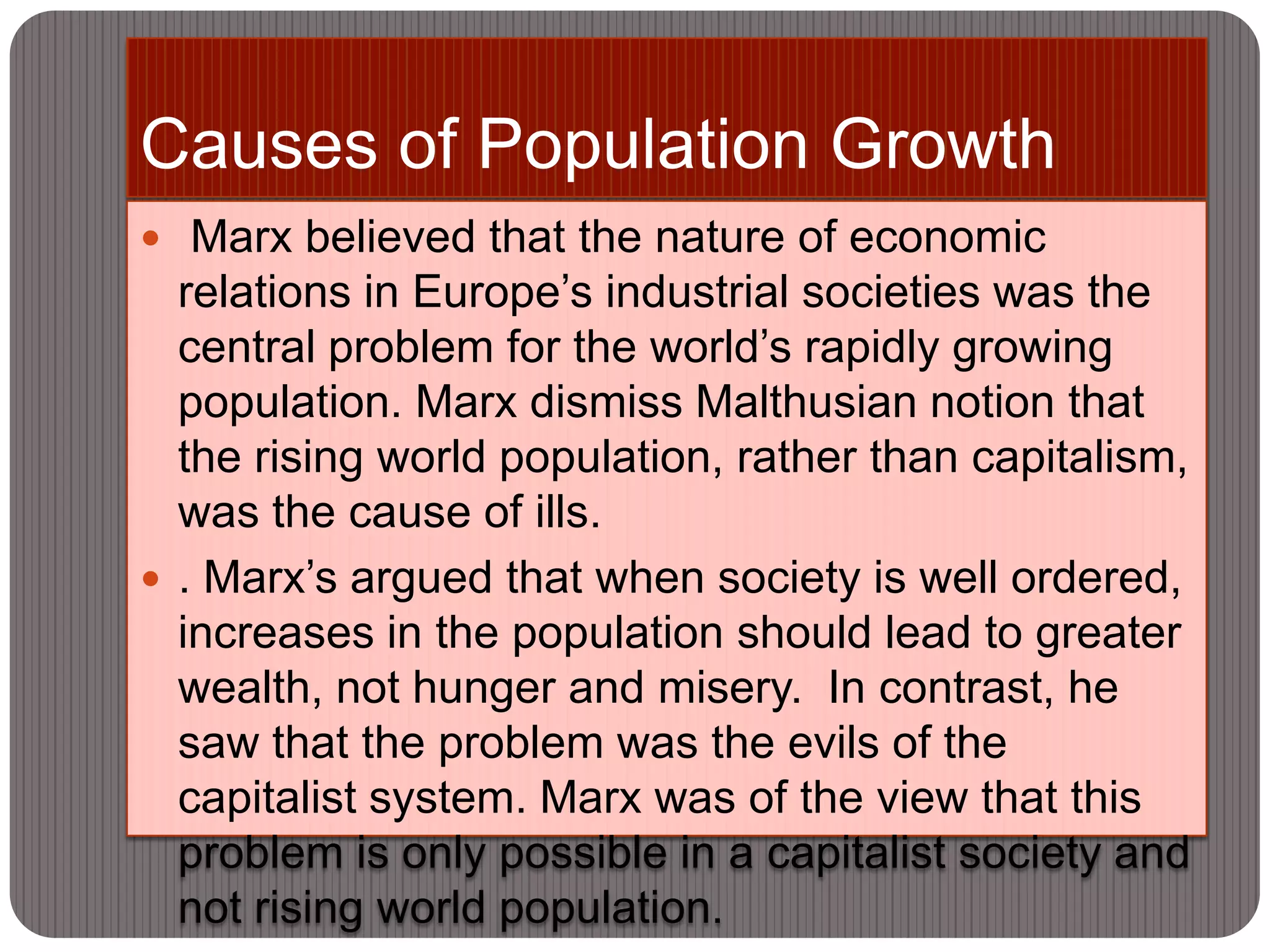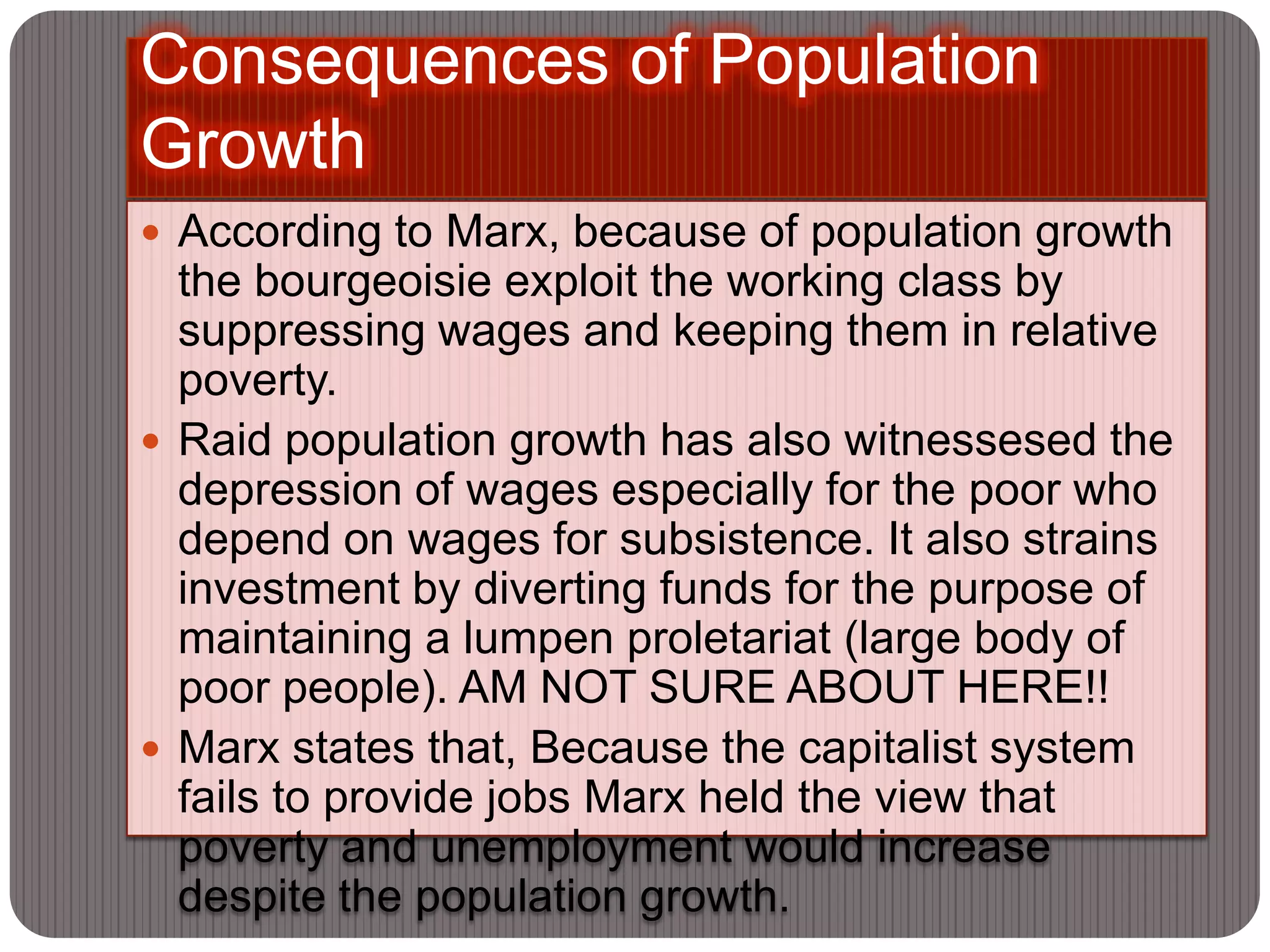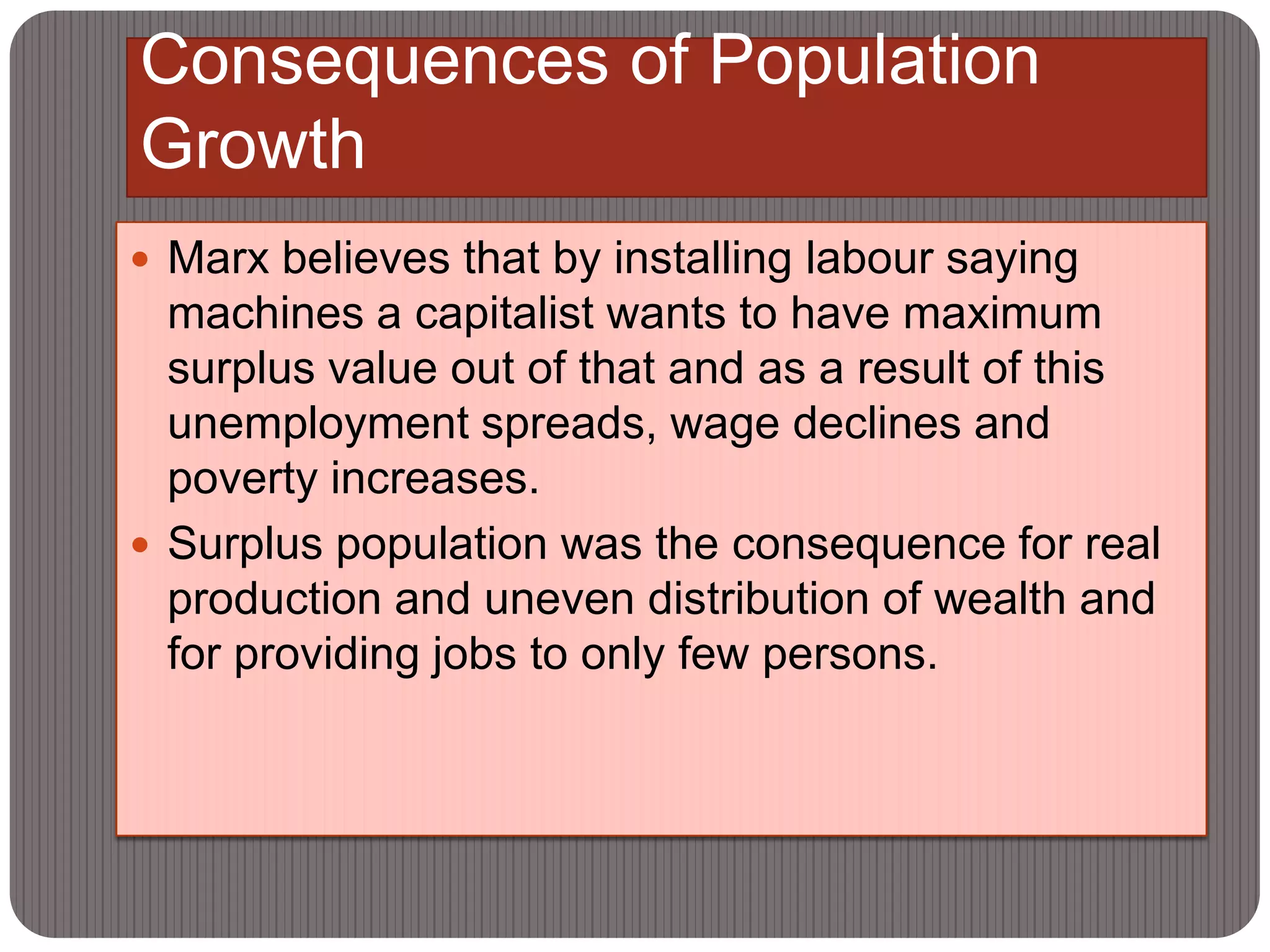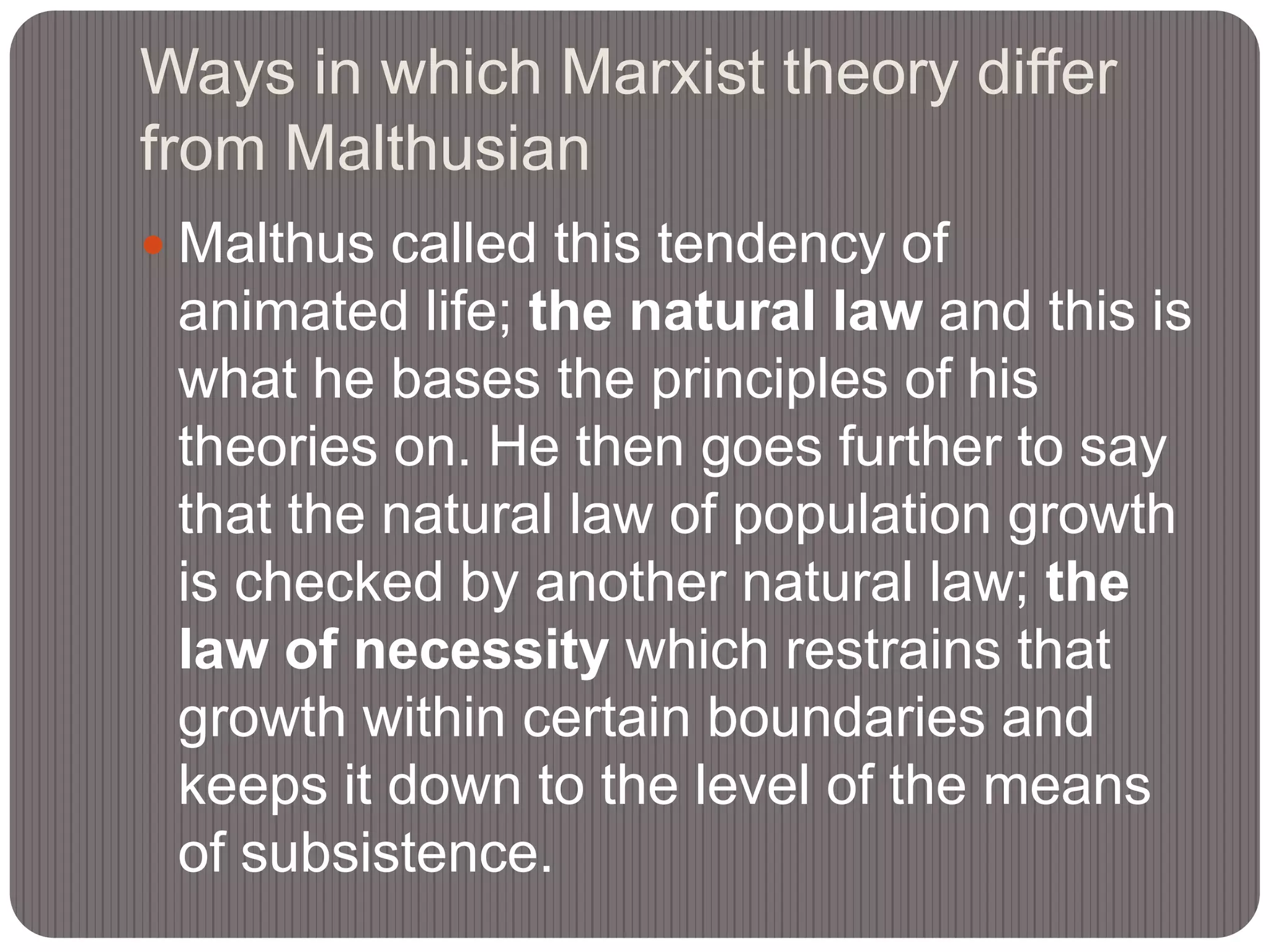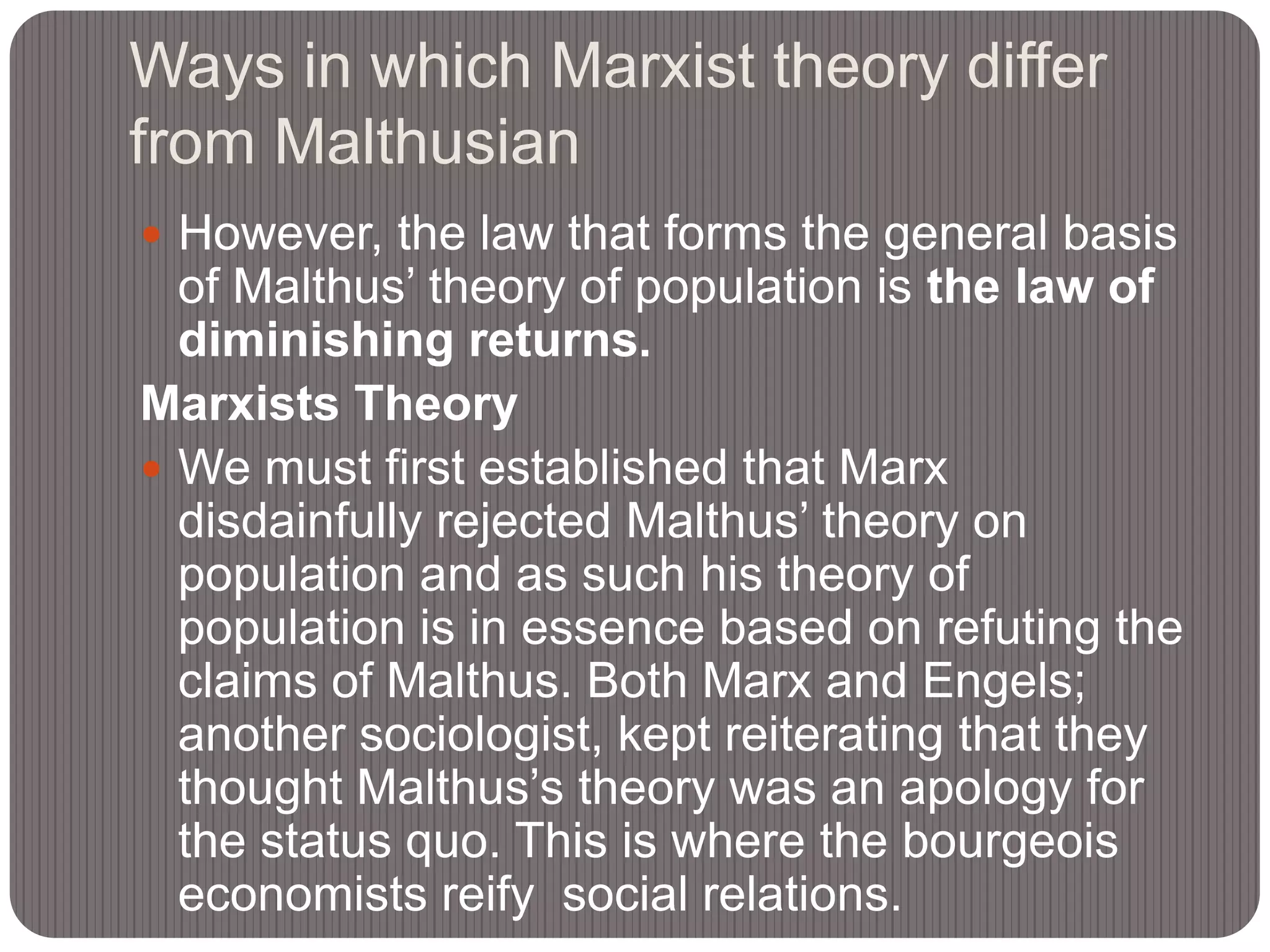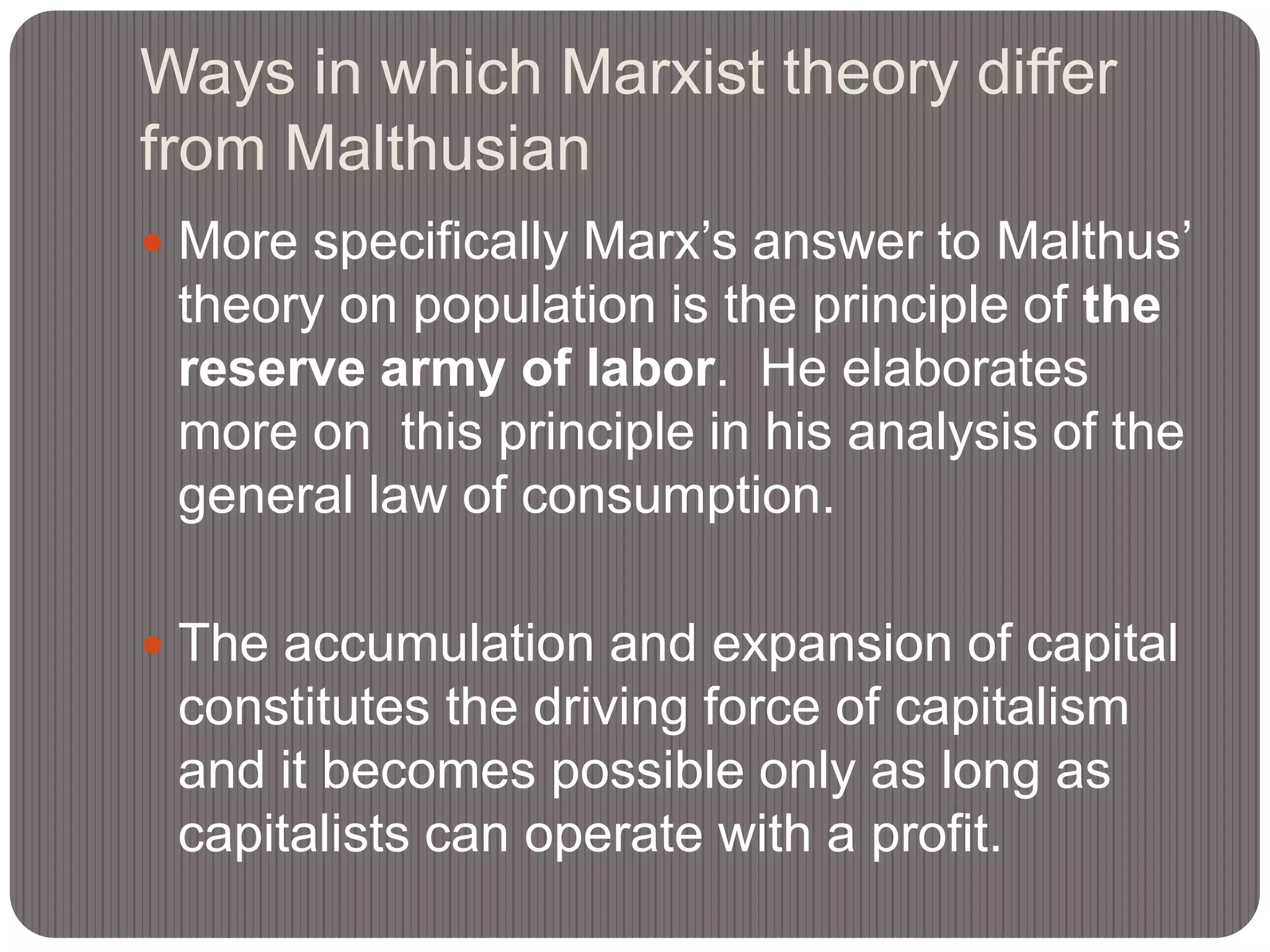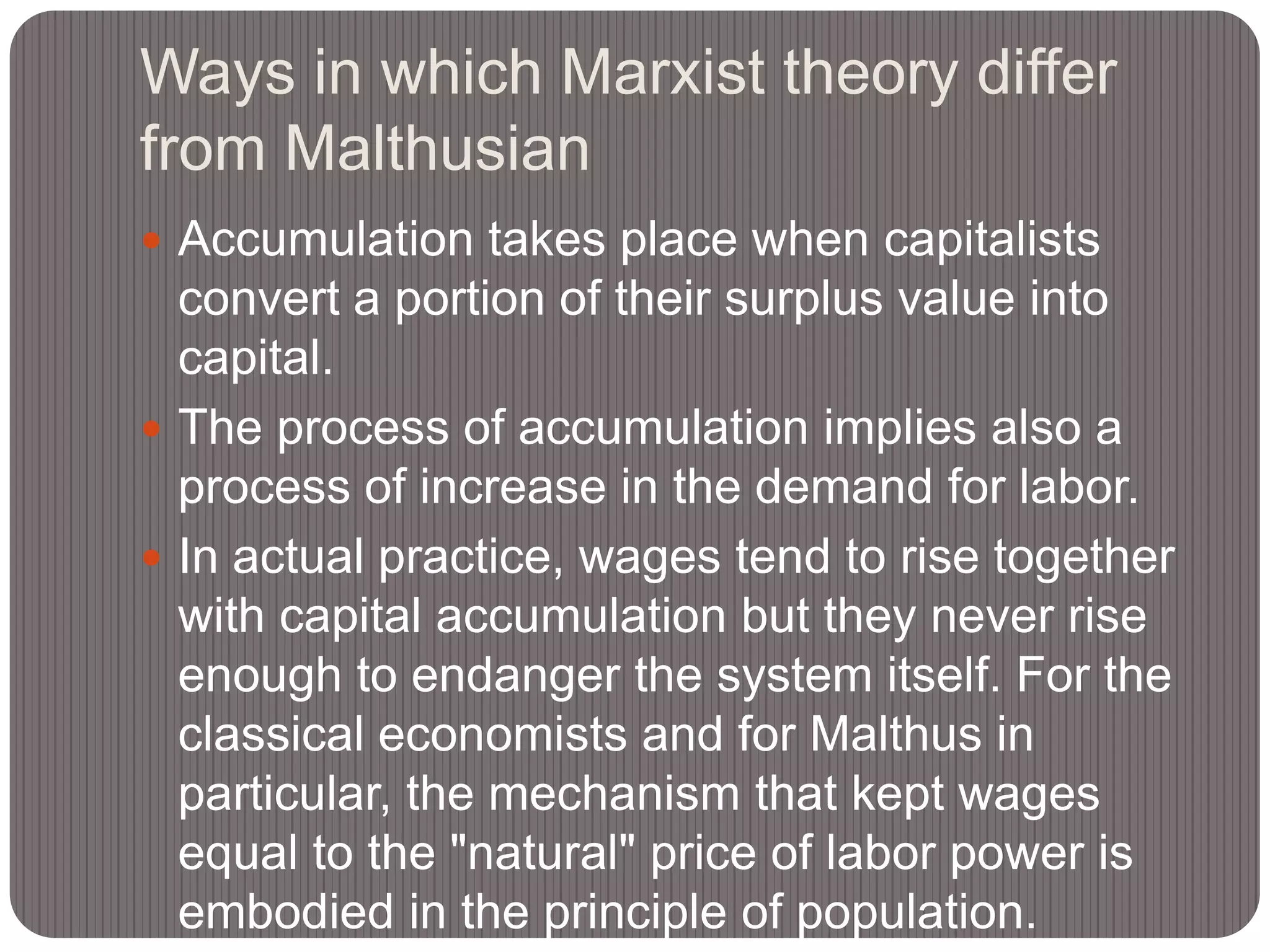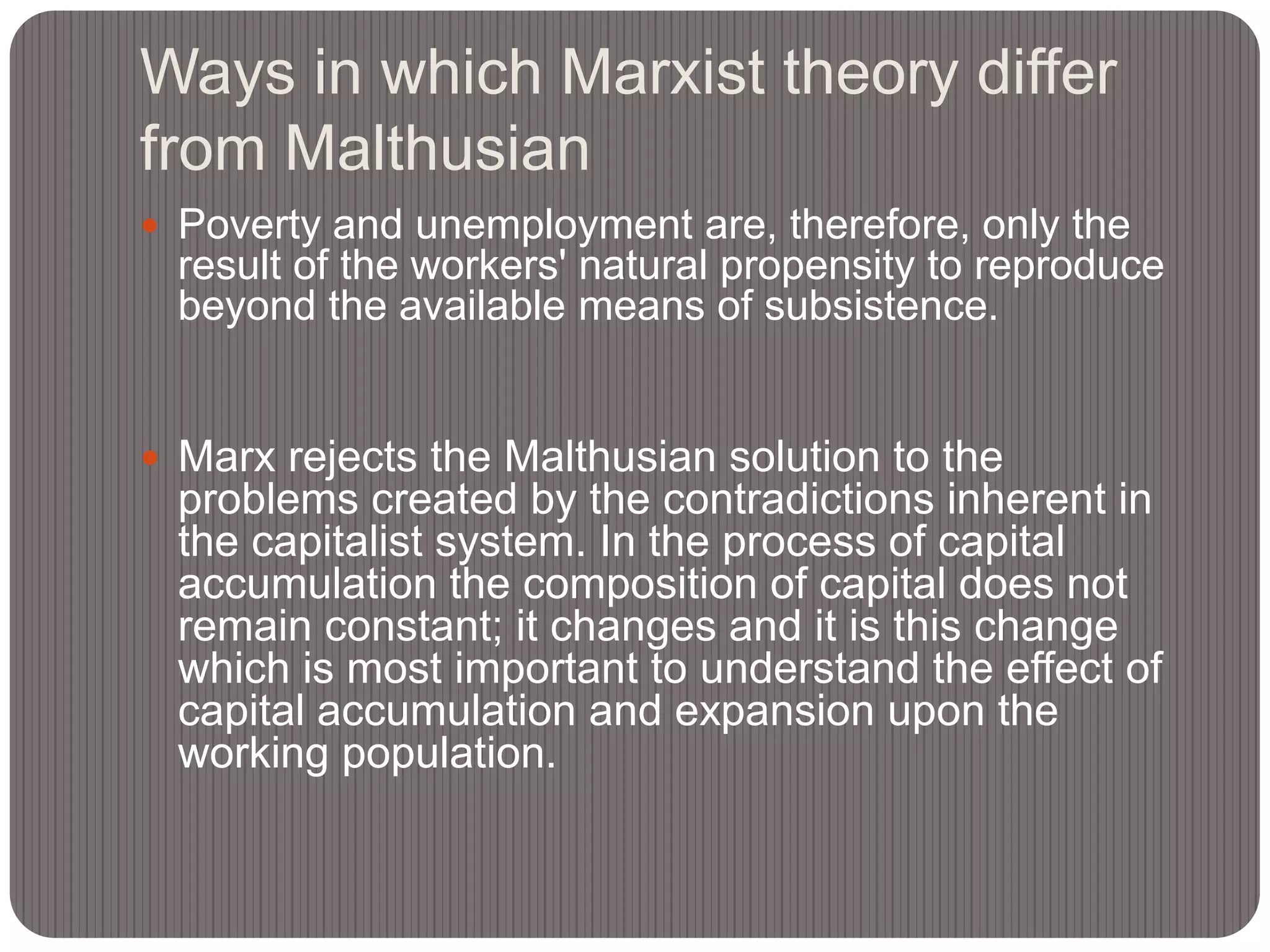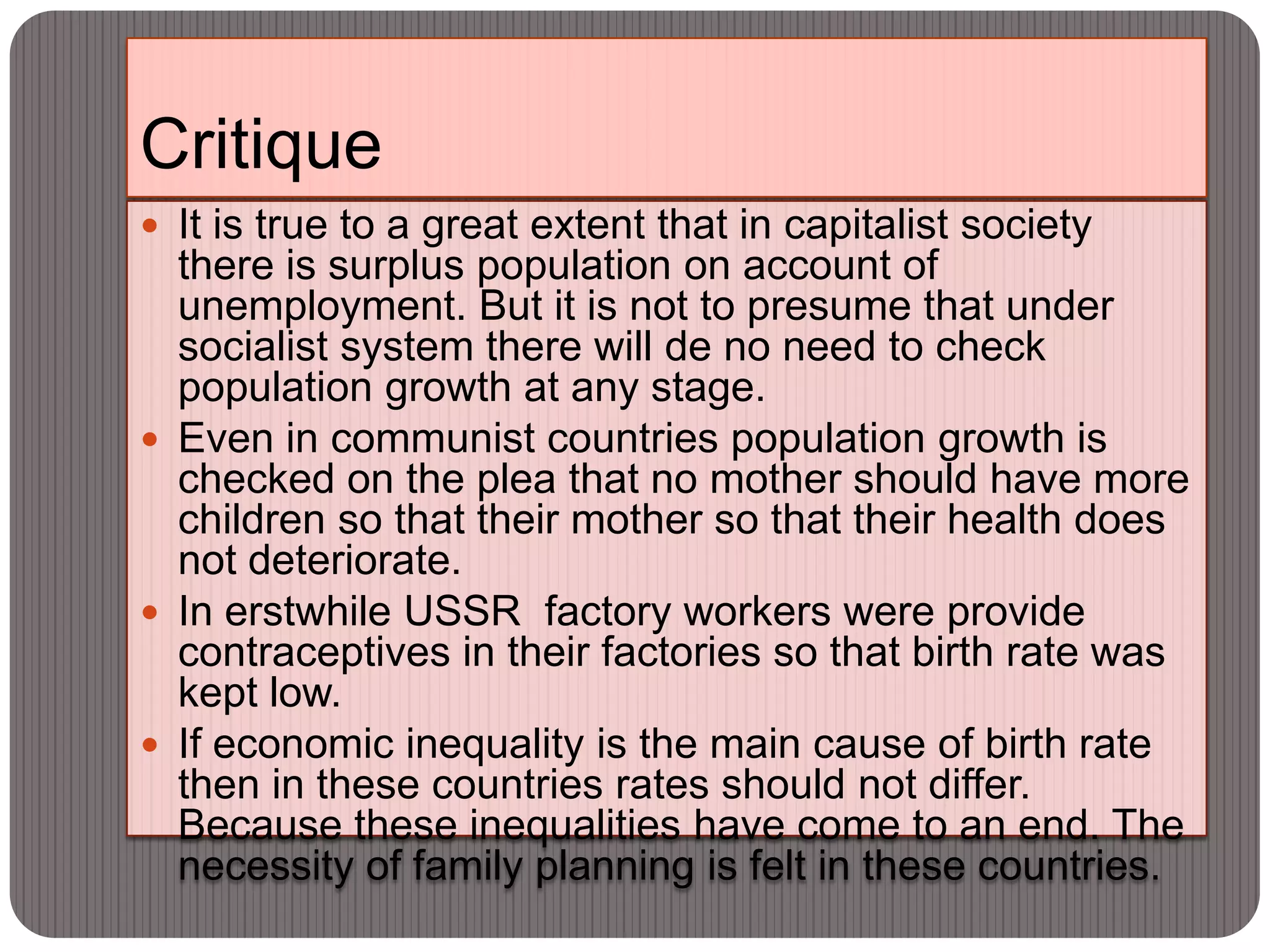1) Marx rejected Malthus' theory that population growth itself caused poverty and famine. Instead, Marx argued that poverty under capitalism was caused by unequal distribution of wealth and lack of jobs, not overpopulation.
2) According to Marx, a well-ordered socialist society could support population growth through increased production and wealth, unlike capitalism which creates a "reserve army of labor" and unemployment.
3) Key differences between Marx and Malthus include Marx's view that poverty is caused by the contradictions of capitalism rather than natural population pressures, and his theory that technological changes under capitalism displace workers rather than Malthus' belief that population naturally outstrips food production.

